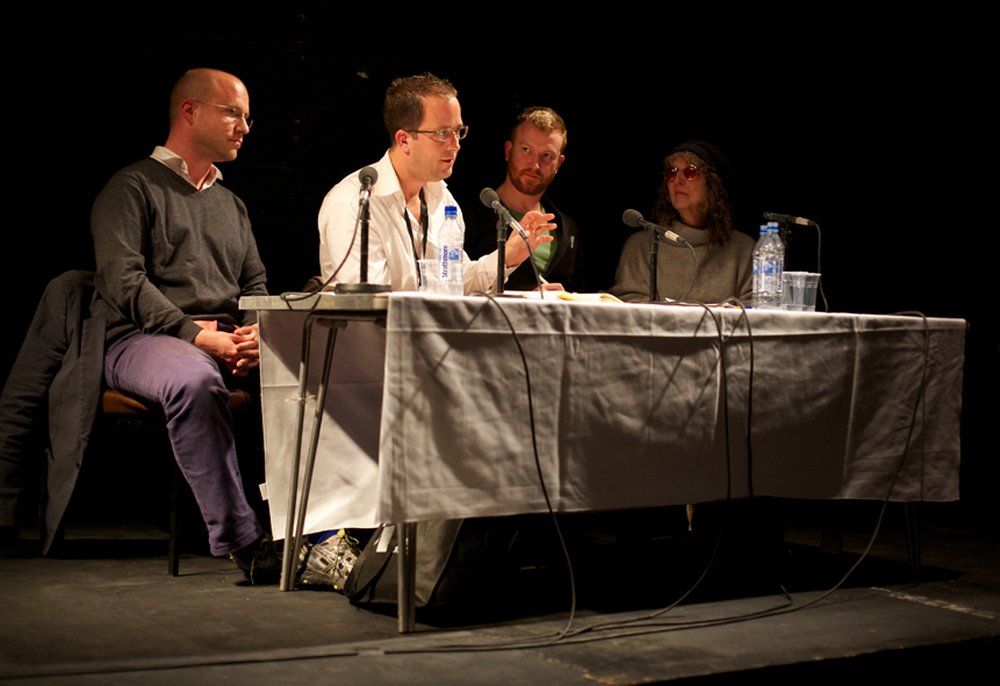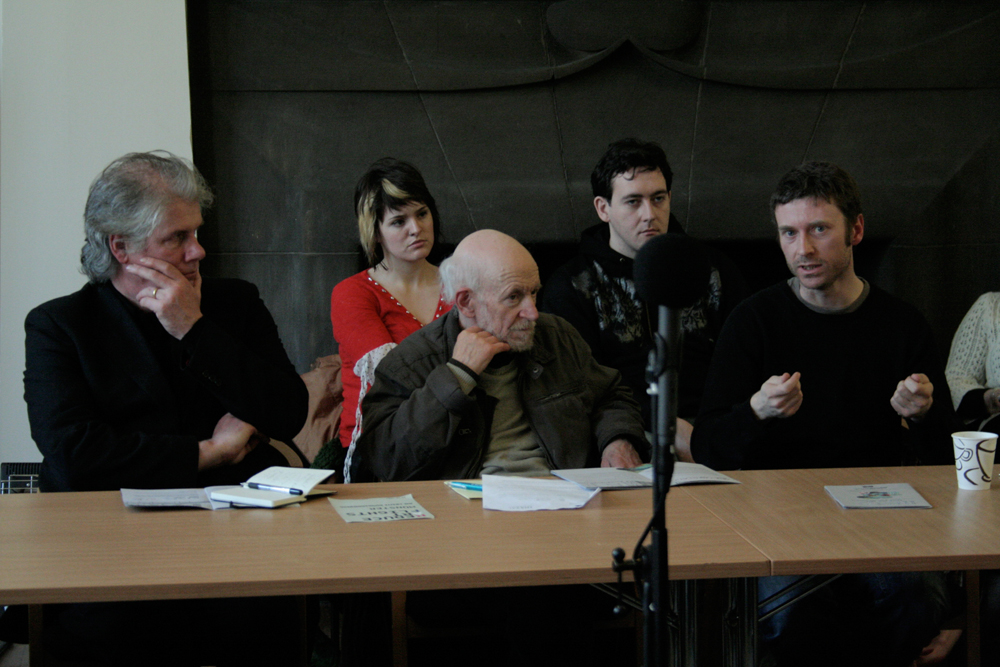
Unstable, fragile but daring together
Emma Hedditch Howard Slater Laurie Pitt Liam Casey Mattin
Instead of the one-way monologue of normal performance, what would be the result of an actual collective dialogue? Where would it go?
Arika have been creating events since 2001. The Archive is space to share the documentation of our work, over 600 events from the past 20 years. Browse the archive by event, artists and collections, explore using theme pairs, or use the index for a comprehensive overview.

Instead of the one-way monologue of normal performance, what would be the result of an actual collective dialogue? Where would it go?

Usurper jamming live in a skip at the site of Bud’s Neill’s Lobey Dosser statue on Woodlands Road.

Electronic music, time, thought, the word, and consecutive matters

Join activists, academics and artists as they reflect on abolitionist praxis and thought, exploring covergences with gender, poetry, technology, performance, speculation, aesthetics, film and culture. This series of events commemorates Black August and is for anyone who wishes to answer the abolitionist call to action and thought.

When one calls a strike, who hears the call, who attunes and listens to it? How to listen to the call of a strike? What prevents one from hearing this call or stops one from listening to it?

When we look, how do we objectify the body; how can we reflect on our (self) image as a construction?

A performed self-cancelling discussion, with artists from the festival, invited speakers and local artists talking at once, over each other, or straining to be heard over the din.
Artist Derek Lodge running a specially designed social space, somewhere for conversation, story-telling and interaction.

A socio-poetic reading on wayward communities – The wayward create upheavals, incite tumult. They come and go as they please; they are fugitive; they are in open rebellion against society.

Pitching Fahey inspired, eastern-infused folk vibrations, sad elliptical drones and oracle chants into one kaleidoscopic sound.

What might Carter and Parker’s collaboration tell us about our own performances of responsibility and liberty, whether individual, social or musical?

How can we imagine bodies not as an end in themselves, but as a medium through which we can become one another’s means?